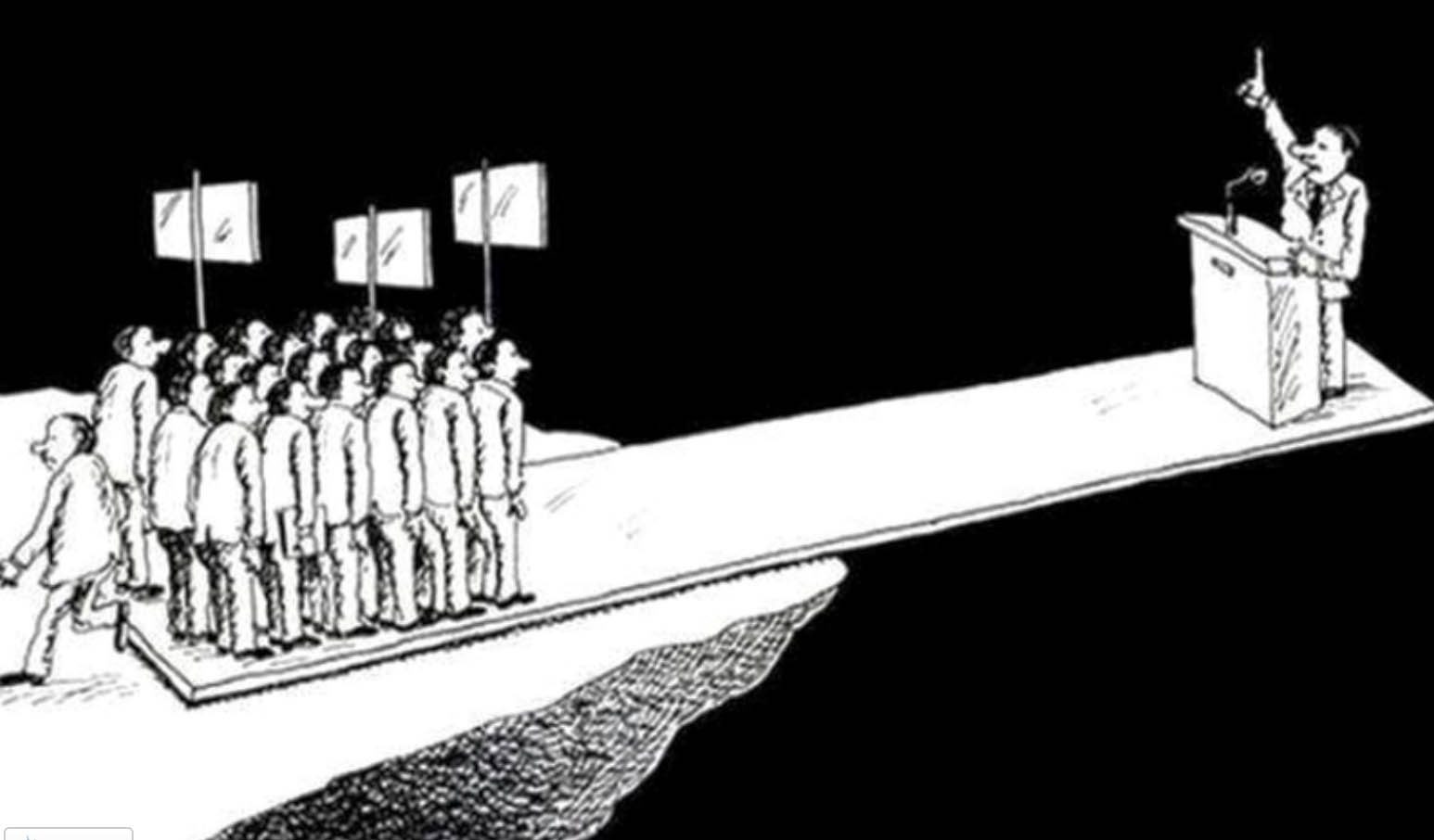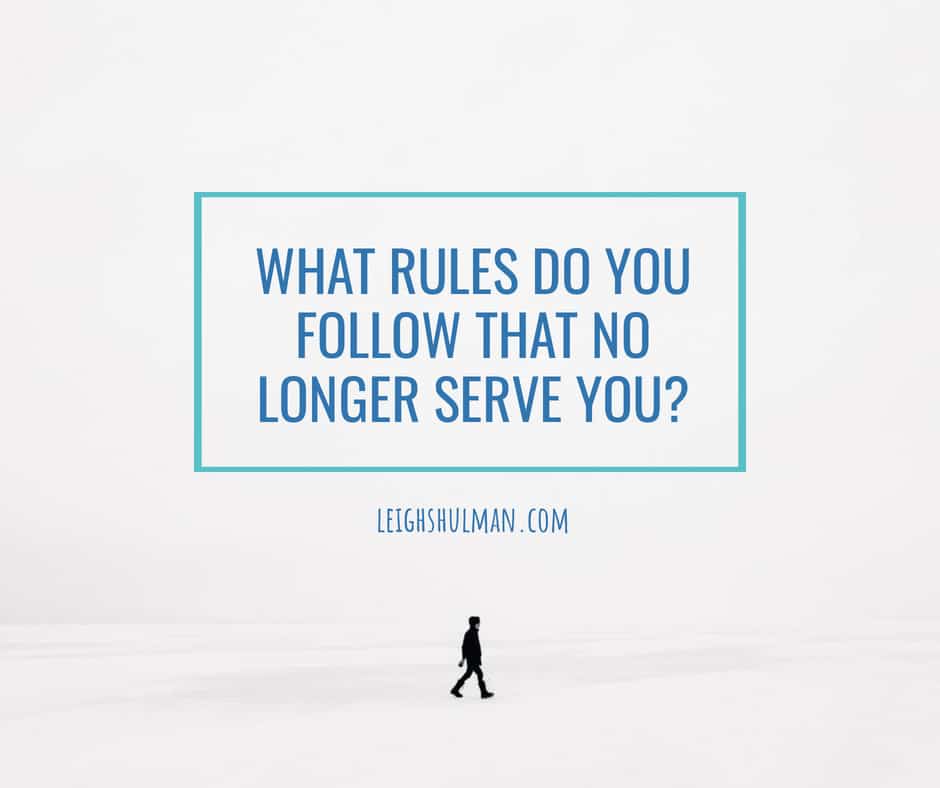What if I told you your point of view matters more than the power structures that guide your life. The rules you follow — the ones that tell you when to wake up, how many hours a week you should work, how much money you can ask for your work — don’t mean anything. What if I told you to Question everything?
The rules we follow only have as much power as we give them.
Back in 2016, thousands of students in Denver made the news when they refused to take standardized tests. They just said no and metaphorically got up and walked out.
I feel a sense of hope when I see this, but as a teacher, it’s also frightening. When I stand in front of a classroom, I am fully aware of the power my students have. If my students walk out on me, what can I do?
I can fail them all, but really, grades, like any other form of discipline, only hold the significance we give them. It’s a weak form of power and were I to hand in a full sheet of failing grades to the university administration, it would reflect more poorly on me than on my students.
So really, the idea that the teacher controls the classroom is a big lie, yet students don’t realize the extent of their power.
The classroom should be your laboratory. It’s a place to test, to try and sometimes fail, then try something else until you learn what works. When you look at it this way, the entire world is a classroom, not just a small box with tiled floors and a chalkboard in front where the teacher stands and writes the date, the aim of that day’s class and anything else she’s required by the state to write.
How do the skills you learn in the classroom translate into the real world? Barely at all. The classroom tells you to sit still, follow the rules, fill in the blank according to the already established guidelines.
A teacher in New Jersey shadowed her students for two days, and you know what she learned? The classroom is a painfully, tediously boring place where learning cannot happen because students are brain dead and butt numb from sitting in one place and staring ahead as they passively listen to a lecture.
We take kids, human beings at their most vital, most energetic and stuff them into seats with desks attached and then order them to listen up now, don’t talk, be quiet or we’ll punish you. The punishment? A letter on a page.
What if you want to be a writer? Or acrobat? Or spin fire for a living? Or you want to travel the world? Or design your own clothing and sell it online? Or invent a machine that washes, dries and folds your clothes in 15 minutes. Or create a car that runs on the power of thought alone?
How does school prepare you to discover that for which there is no pre-assigned major or “way of doing things”?
It doesn’t.
Instead, question everything.
I was teaching at Stern College for Women when the two planes hit the World Trade Center. To help my students process the events, we read the news, compared reports and pieced together what we could truly verify versus that which was hearsay. It was a lesson in finding reliable sources.
We learned there is far more hearsay in this world than verified truth.
Some other examples of this:
Why did the governor of Ferguson, MO call a police state of emergency before the trial ended?
Why did so many people cling to Bill Cosby as the embodiment of family values in spite of years of allegations against him?
Why is this man treated like a criminal when he’s not with his wife?
Is Fruity Pebbles truly the best part of breakfast?
Ursula Le Guin at the 2014 National Book Awards lambasted the publishing industry for quelling artistic voices and called on us to reclaim them.
Books, you know, they’re not just commodities. The profit motive often is in conflict with the aims of art. We live in capitalism. Its power seems inescapable. So did the divine right of kings. Any human power can be resisted and changed by human beings. Resistance and change often begin in art, and very often in our art—the art of words.
Question everything!
I never admitted to my students that the power of my classroom rested entirely in their hands because I was afraid of their power. Instead, I treated them with respect. I asked them what they wanted and gave them options for learning. This is also the reason I put their grade solidly in their hands. I offered detailed feedback on their writing, analysis, and ideas. But the grade? I based their grades on a simple percentage of how often they showed up to class and how much work they completed on time.
To my surprise, they didn’t like it.
My students weren’t comfortable with being fully accountable for their own work. Why? Because when there’s no one to tell you how things should be done, you must make decisions for yourself. You are free to create and explore, but you’ll also make mistakes. You will write shitty writing, and you will be forced to trust your own judgment. It’s hard.
Still, question everything.
That’s why I rejoice when I see students saying no to standardized testing and reclaiming their power. It means we are slowly learning to see the world a bit differently, to turn it on its side and navigate another path in this world, one in which we can lead with our stories.
What are you doing now that is based on assumptions that aren’t really true? What rules do you hold as gospel that don’t serve you anymore?
Are they working for you? Or are you wishing you could have something different than what has always been?
What will you do with your power?



